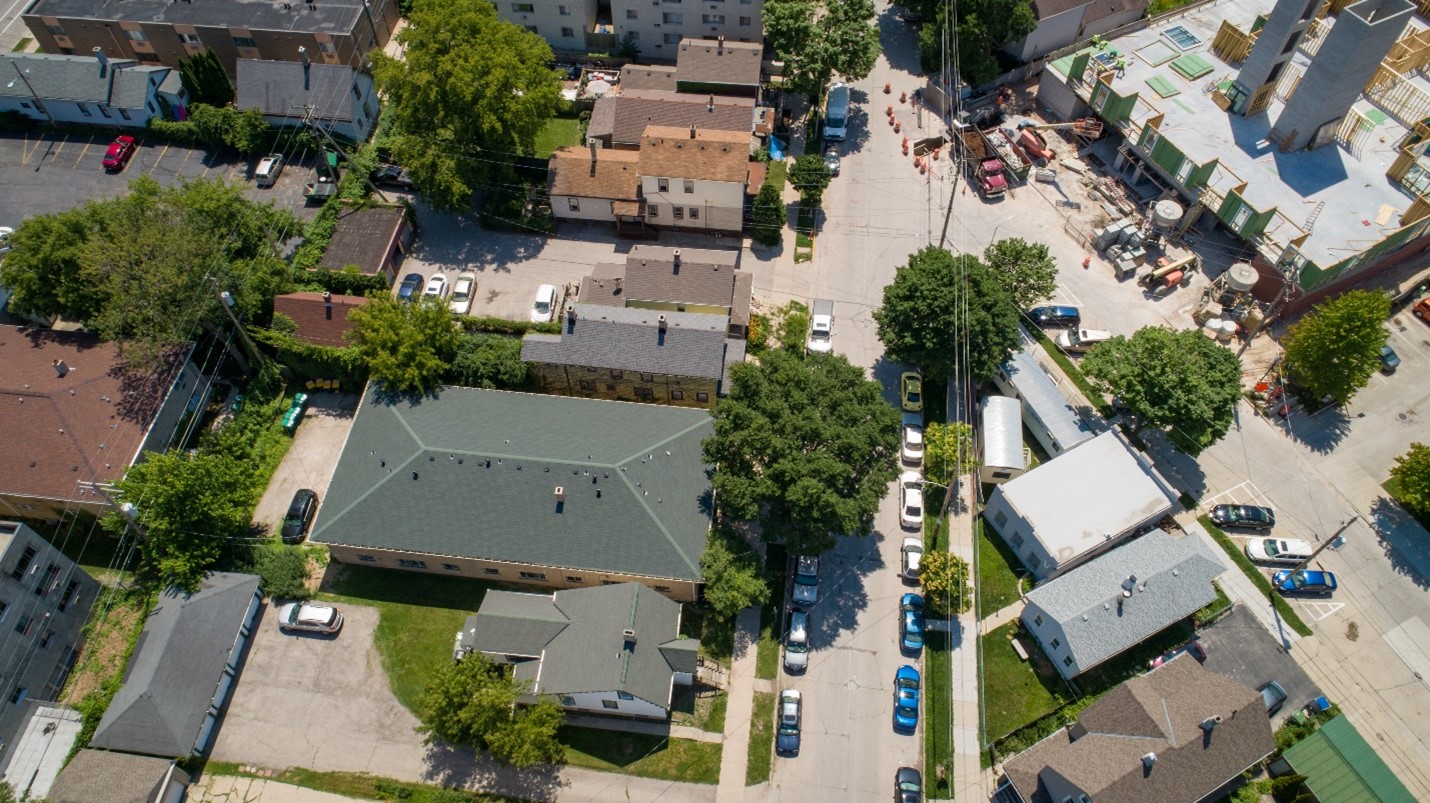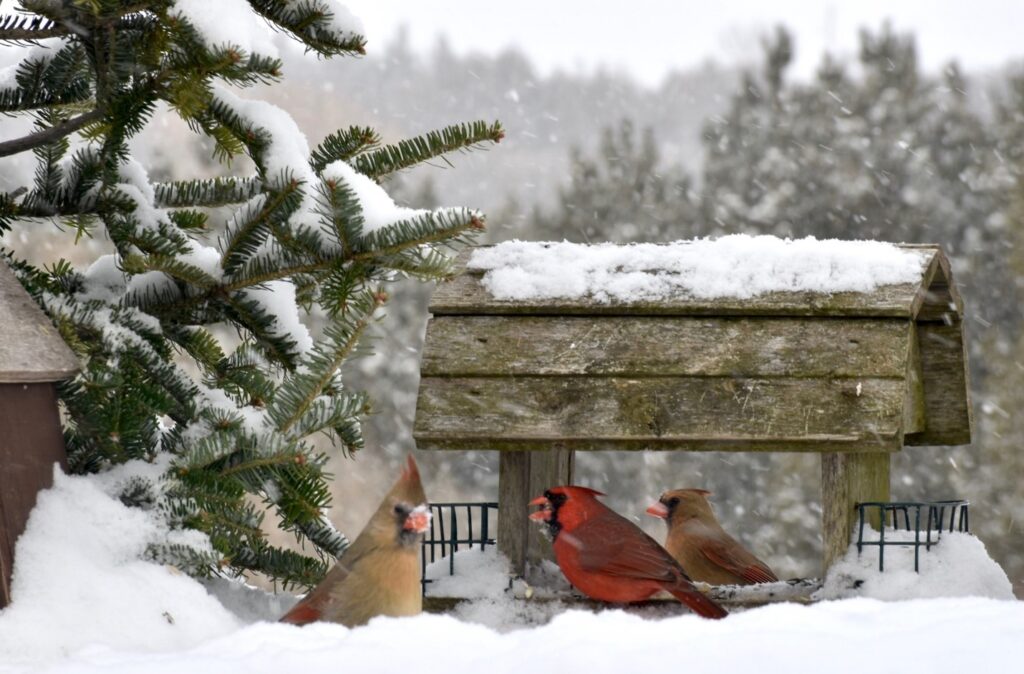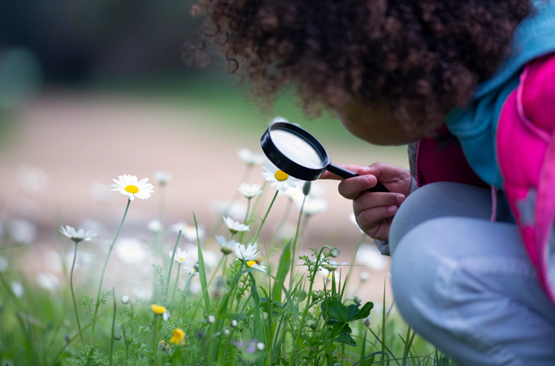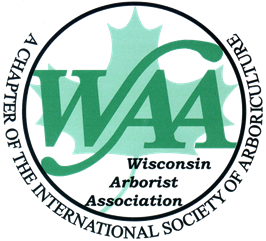In 2008, LEAF, Wisconsin’s K-12 Forestry Education Program, created a Forester Activity Guide. The intent of the guide was to help foresters lead age-appropriate, interactive, hands-on classroom programs for students in grades K-8 with a minimum amount of advanced preparation. The guide was promoted to foresters throughout Wisconsin and even included as part of programming during new forester orientation.
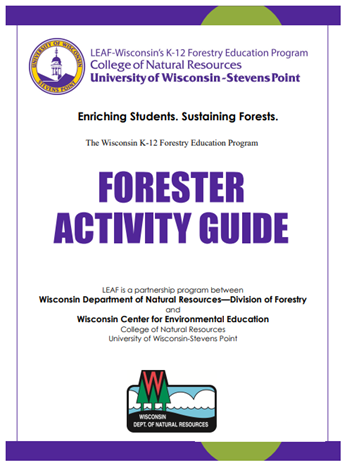
Front page of the Forester Activity Guide. Credit: LEAF
In fall 2021, LEAF staff, working with Kirsten Held, determined that an update to the guide was overdue. To be certain a new guide would meet the needs of current foresters, LEAF sought input from professionals around the state who have both field experience and an enthusiasm for working with students.
The following DNR Division of Forestry staff partnered with LEAF to create a new and improved Forester Activity Guide: Brooke Ludwig, Eau Claire; Steven Kaufman, Oconto Falls; Kara Oikarinen, Washburn; Scott Mueller, Medford; Sarah Ward, Montello; and Brian Wahl, Fitchburg.
The new Forester Activity Guide builds upon the goals set for the original K-8 guide by including more opportunities for outdoor learning around themes that foresters are frequently asked about: What Do Foresters Do?; Caring for the Forest; Forest Products & Benefits, Tree Planting and Natural Restoration and Fire.
All activities include tips for modifying lessons to urban settings and suggestions on how to use the lessons with learners from grades K-12. Lessons in the new guide all have slideshow presentations that foresters can use if their visits must take place in an indoor setting and require even less advanced preparation than lessons for the original guide. Continue reading “DNR Foresters Partner with LEAF Program to Update Forester Activity Guide” →

